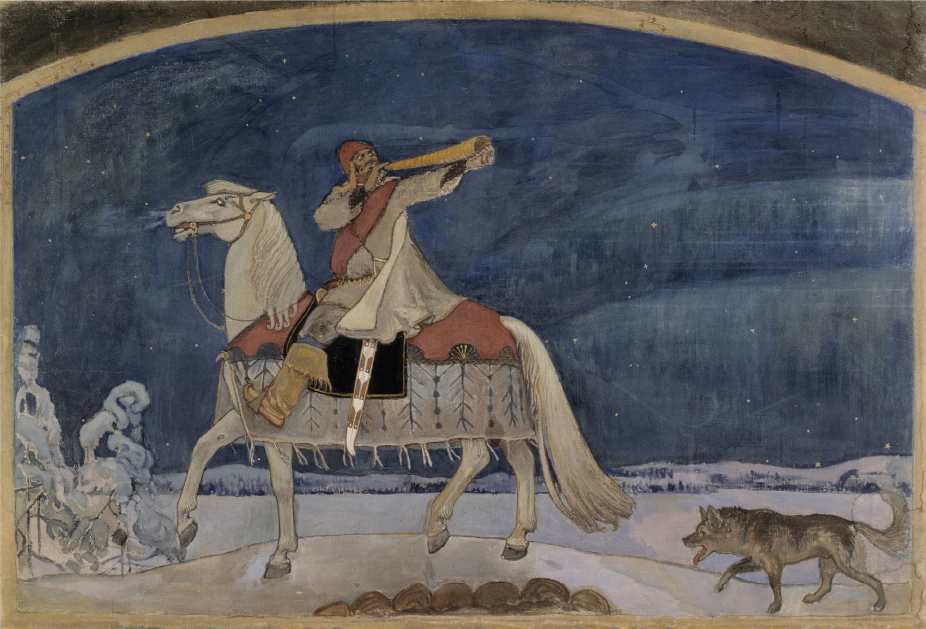All this specifying of national styles had another effect: Audiences came to enjoy hearing folk music of other nations at concerts and the opera. French composers wrote Spanish music, Russians wrote Italian music, and Czechs wrote American music (George Bizet’s opera Carmen, Tchaikovsky’s orchestra piece Capriccio Italien, and Antonín Dvořák’s famous New World Symphony, with its reference to spirituals). Such music cannot be called nationalistic, since its aim was not national self-definition, but it still had the effect of emphasizing the unique qualities of nations. It is usually simply called “exotic.” Puccini’s Madame Butterfly (see page 275) exemplifies this trend. Puccini even studied a few samples of Japanese music to find the right exotic sound for his opera.

Nationalism: For Finland, chafing under the rule of Russia, the epic poem Kalevala became a nationalist icon, drawn upon again and again by composer Jean Sibelius, as well as the Finnish painter Akseli Gallen-Kallela. In our picture, Kullervo, one of the saga’s heroes, rides off to war; Kullervo by Sibelius is a grandiose symphonic poem. Ateneum Art Museum, Finnish National Gallery, Helsinki, Finland/The Bridgeman Art Library.
